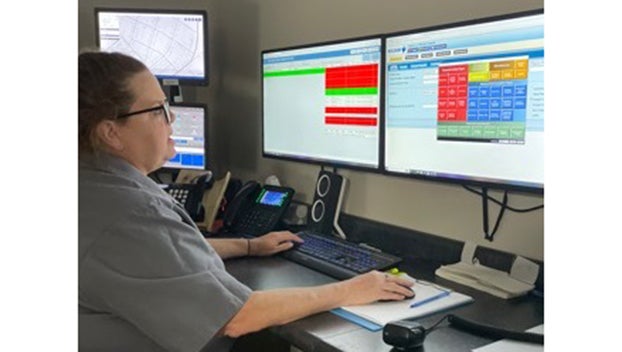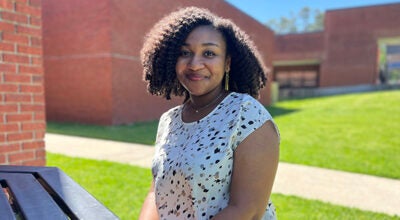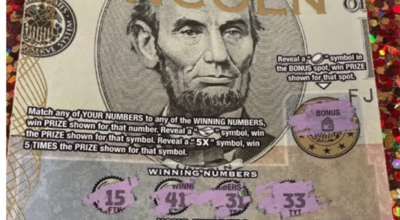FIRST RESPONSE: 911 dispatchers are first point of contact during emergencies
Published 9:41 am Sunday, April 30, 2023

- E-911 Director Mary Allen uses the VitalClick software in the dispatchers’ office, located downstairs at the Concordia Parish Courthouse. (Submitted)
|
Getting your Trinity Audio player ready...
|
Editor’s Note: This week, we honor all first responders of the Miss-Lou with a themed edition of The Natchez Democrat. For more stories about first responders, check out this weekend’s edition of the Democrat.
As early as elementary school, we’re taught that if there is ever an emergency, the first thing to do is call 911.
However, in Mississippi, 911 dispatchers, or telecommunicators, were not officially recognized as “first responders” until Gov. Tate Reeves issued a proclamation naming them such in the fall of 2022.
At times, the job can feel pretty thankless, said Mack James, who, after 17 years working at Adams County E-911, got a word of praise last year when he received the Jason Busby Award as Telecommunicator of the Year for all of Mississippi.
He received the award at a Halloween costume banquet in Biloxi. It was unexpected, he said.
“I wasn’t feeling well that day but still went to the conference,” he said. “When they called my name, I thought I didn’t hear him right at first. I was blown away.”
After an emergency, some remember to thank the police officers or firefighters but forget to thank the dispatchers.
“They don’t understand that we’re a separate entity,” James said, adding that although they are the first point of contact, they work behind the scenes.
E-911 Director Annette Fells said dispatchers undergo training before they ever take a call and have to be recertified again every three years as technology changes.
There are some who abuse 911, which is the same as giving a false report to a police officer and can result in criminal charges, Fells said.
James cautioned parents or guardians against giving their young children phones or tablets, with or without cell service or a charged battery, because they could still dial 911 accidentally.
“We’ve had a kid that called every day for almost a week straight and when we called the number back it seemed like the mom never answers the phone,” he said. “When we can’t reach an adult, we have to send an officer out and that could take away resources from an actual emergency. We try not to send the officers to the houses with we don’t have to.”
James said often calls are exaggerated to quickly get emergency personnel to a scene. Whether or not a “roaring fire” turns into trash being burned inside a barrel, every call has to be taken seriously, he said.
“We do know people tend to exaggerate, but we take every call seriously because you never know when they’re not exaggerating,” he said.
Frankeeda Spurs of Concordia Parish Sheriff’s Office dispatch agreed.
“You never know what a call could turn out to be, so you have to take every call seriously and send someone out to every call,” she said.
Spurs became a Concordia Parish dispatcher last year in May with no prior experience but a whole month of training, she said.
It wasn’t too difficult, she said, adding that part of the training is memorizing what are called “10 codes” and letter codes so that information can be relayed quickly and accurately to officers over the airwaves.
Both speed and accuracy can be life-saving, she said.
One thing James asks of 911 callers is patience. In an emergency, minutes seem like hours.
“I’m glad everything is time-stamped,” he said. “We’ve gotten calls where they literally call back three minutes after they called us and say, ‘It has been 30 minutes,’ and I tell them you just called three minutes ago.”
Spurs emphasized the importance of callers being willing and open to sharing information that could potentially save lives or help solve cases.
Both Concordia Parish and Adams County now have technology that allows them to share a link with a 911 caller that will let the dispatchers see the scene for themselves or text the caller directly when they are using a cell phone.
Spurs said it does not allow 911 to hack into their phones, which some people think.
“It’s just like using facetime,” she said. “We used it one time and that was to help find someone who was out on the water. They couldn’t tell us where they were, but using that app, we were able to see where they were.”
Another thing James asks of callers is for them to be aware of their surroundings and be able to share true accurate information with the dispatcher.
“It’s not like in the TV shows,” he said. “A lot of people call and they are under the assumption that we can do more than we actually can. They’ll say, ‘I need you here now,’ but you haven’t told me where you are.”
Spurs said more information is always better.
“I encourage people not to hesitate to call if they need help, even if they think, ‘Oh, it’s nothing.’ Even an anonymous call is OK,” she said.





